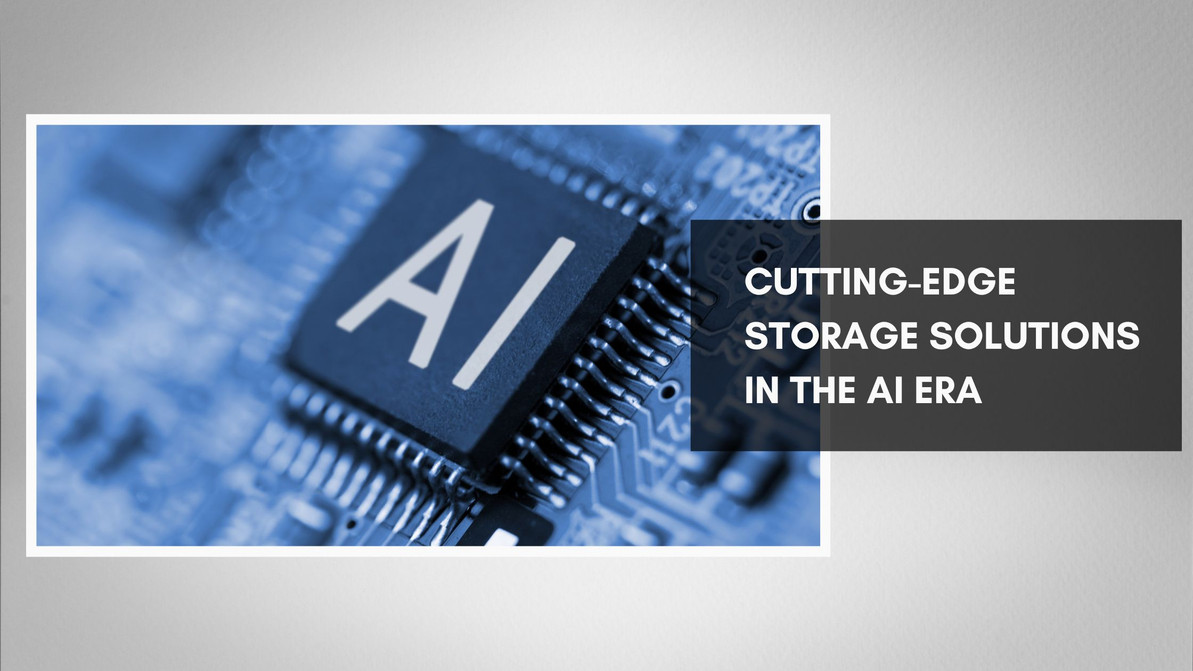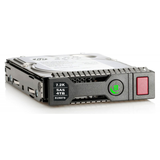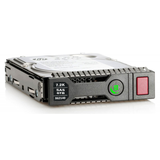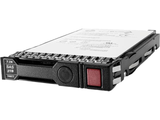Mastering Modern Data: Cutting-Edge Storage Solutions in the AI Era
In the rapidly evolving digital era, Artificial Intelligence (AI) has become a cornerstone of innovation across various industries. As AI technologies proliferate, the demand for more sophisticated data storage solutions escalates. The need for efficient data storage is more than just a requirement; it's the backbone that supports the complex computations and vast data analyses AI applications perform. This post delves into how cutting-edge storage solutions are transforming data management and what benefits these bring to businesses leveraging AI.
The Rise of Data-Intensive AI Applications
AI applications are intrinsically data-intensive. They require rapid processing of enormous datasets to function optimally, from real-time analytics in financial trading to complex simulations in autonomous vehicles. The sheer volume of data generated by these applications necessitates storage solutions that are not only capacious but also capable of high-speed data retrieval and real-time processing. This is where advanced storage technologies come into play, ensuring that data flows efficiently through AI models, thereby reducing latency and increasing throughput.
Data-intensive AI applications range from natural language processing (NLP) and computer vision to predictive analytics and machine learning. Each of these applications generates vast quantities of structured and unstructured data that need to be stored securely yet remain accessible for real-time processing. Efficient data storage minimizes the delays associated with data retrieval and processing, thus enhancing the performance of AI systems. AI-driven applications demand storage solutions that can handle high Input/Output Operations Per Second (IOPS), support massive parallel processing, and offer scalability to accommodate growing datasets.
Exploring Modern Storage Devices
Today's market offers a myriad of storage devices, each suited to different needs and budgets. From traditional spinning hard drives to modern solid-state drives (SSDs) and the latest NVMe SSDs, the landscape of storage solutions is diverse. SSDs, in particular, have become prevalent in AI environments due to their rapid data access speeds.
Traditional Hard Disk Drives (HDDs) are cost-effective for bulk storage but fall short in terms of speed compared to SSDs. Modern SSDs use NAND-based flash memory that provides faster read/write speeds, lower power consumption, and higher durability. NVMe (Non-Volatile Memory Express) SSDs take this a step further by leveraging the PCIe (Peripheral Component Interconnect Express) interface for even faster data access, ideal for AI workloads that demand quick processing of high-volume data. Businesses can choose from a range of storage devices such as consumer-grade SSDs for general use or enterprise-grade SSDs and NVMe solutions designed for high-performance computing environments.
The Advantages of SSDs in AI
Solid State Drives (SSDs) are at the forefront of storage technology, especially beneficial in AI applications for their speed and reliability. Unlike traditional hard drives, SSDs have no moving parts, which means faster data access times and lower failure rates—crucial for databases that underpin AI applications. These drives can significantly improve the performance of AI systems, reducing the time it takes for AI models to train and execute.
SSDs offer low latency, enabling faster analysis and more efficient model training. This results in quicker insights and more agile decision-making processes. SSDs also support heavy read/write workloads typical in AI applications and provide better shock resistance and durability. Enterprise SSDs come with additional features such as enhanced error correction codes (ECC), end-to-end data protection, and power loss protection, ensuring data integrity and reliability. By leveraging the high performance of SSDs, businesses can accelerate their AI deployments and stay competitive in a fast-paced market.
Protecting Your Data with Enclosures
While SSDs enhance performance, protecting these devices is paramount. Enclosures are critical for safeguarding storage hardware from physical damage and enhancing their performance through better heat dissipation and robust physical security. Whether in a rugged industrial environment or a high-density data center, choosing the right enclosures ensures that your storage investments are secure and operate at peak efficiency.
Enclosures not only protect against environmental hazards such as dust, moisture, and temperature fluctuations but also offer security features like tamper-evident seals and access controls to prevent unauthorized access. High-quality enclosures are designed to optimize airflow and cooling, preventing overheating and ensuring consistent performance. Rack-mounted enclosures in data centers provide scalability and ease of maintenance, while portable, rugged enclosures cater to field applications where mobility and protection are crucial. By investing in suitable enclosures, businesses can prolong the lifespan of their storage devices and mitigate risks associated with physical damage and data breaches.
Deciding When to Upgrade to Advanced SSDs
For many businesses, upgrading to advanced SSDs like NVMe can be a game-changer, particularly in AI scenarios where processing speed and data throughput are critical. Knowing when to upgrade to more advanced SSDs involves understanding your current workloads and their performance bottlenecks. Such upgrades can drastically reduce latency, improve system responsiveness, and handle larger data sets more effectively, thus enhancing the overall performance of AI applications.
The decision to upgrade should be based on a thorough assessment of existing storage infrastructure, current and future data storage needs, and performance requirements. Metrics such as read/write speeds, IOPS, data latency, and storage capacity should be evaluated to determine if existing solutions are meeting the demands of AI workloads. Advanced SSDs like NVMe provide benefits such as reduced latency, higher throughput, and the ability to manage parallel processing tasks more effectively. Organizations should also consider the Total Cost of Ownership (TCO) and potential return on investment (ROI) when planning an upgrade. The transition to advanced SSDs can unlock new levels of performance, enabling businesses to leverage AI technologies more effectively and gain a competitive edge.
Future Trends in AI and Data Storage
As AI continues to advance, so too will the technologies that support it. Future storage solutions will likely incorporate more advanced forms of NVMe drives, augmented by technologies like 3D XPoint, which offers non-volatile memory speeds close to traditional RAM. Emerging trends also suggest a move towards software-defined storage (SDS), which can dynamically manage data across a myriad of storage devices and interfaces, optimizing both speed and cost.
The integration of artificial intelligence in data storage systems, known as AI-driven storage, is another emerging trend. AI-driven storage systems use machine learning algorithms to predict and optimize data placement, manage storage resources more efficiently, and automate routine tasks. This results in improved performance, reduced manual intervention, and enhanced scalability. Additionally, hybrid cloud storage solutions are gaining traction, offering the flexibility to balance on-premises and cloud storage, enabling businesses to manage data more strategically. As data volumes continue to grow, technologies like edge computing will become crucial, allowing data processing closer to the source and reducing latency. Staying abreast of these trends will enable businesses to adapt and thrive in the evolving landscape of AI and data storage.
Conclusion
Selecting the right data storage solutions is crucial for leveraging the full potential of AI technologies. As we navigate these new norms, embracing advanced storage technologies not only supports the immediate needs of AI applications but also prepares organizations for future advancements. By investing in efficient data storage solutions, businesses can ensure they remain at the cutting edge of technology, ready to harness the transformative power of AI.
Adopting advanced storage solutions offers businesses the dual benefits of enhanced performance and robust data management, essential in the age of AI where data is not just a resource—it is the very foundation of innovation. Implementing these solutions lays
Recent Posts
-
Power, Performance, and Reliability: The Ultimate HPE 4TB SAS Hard Drive for ProLiant Servers
Introduction The HPE 4TB 7200RPM 3.5-inch Large Form Factor (LFF) Dual Port SAS-12Gbps Smart Carrier …Feb 22nd 2025 -
Reliable & Secure Storage: HPE 6TB SAS-12Gbps Smart Carrier HDD for ProLiant Servers
Introduction The HPE 6TB 7200RPM 3.5-inch LFF Digitally Signed Firmware 512e SAS-12Gbps Smart Carrie …Feb 21st 2025 -
The Powerhouse Drive for Next-Gen Enterprise Storage The HPE 2TB SAS SFF Hard Drive
Introduction In today’s data-driven world, businesses require reliable, secure, and high-capac …Feb 20th 2025




